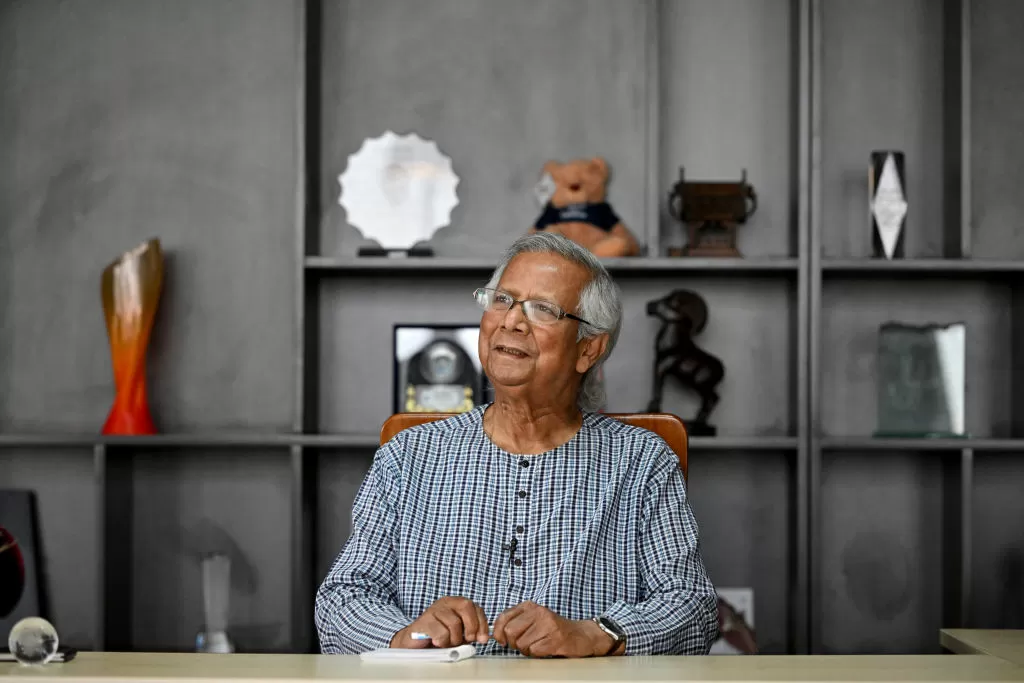The Bangladeshi Nobel Peace Laureate, Professor Muhammad Yunus, has been a beacon of hope and inspiration for the people of Bangladesh and the world. His tireless efforts to fight poverty and empower the underprivileged have earned him global recognition and admiration. However, in recent times, Professor Yunus has found himself embroiled in a battle against what many observers are calling “judicial harassment” by his own government.
Professor Yunus, who won the Nobel Peace Prize in 2006 for his pioneering work in microfinance and poverty alleviation, has been a vocal critic of the current government’s policies. He has been a strong advocate for the rights of the poor and marginalized, and his work has positively impacted the lives of millions of people in Bangladesh and beyond. However, his outspoken nature and unwavering commitment to social justice have made him a target of the government’s ire.
In 2011, Professor Yunus was removed from his position as the head of Grameen Bank, the microfinance institution he founded, by the government. This move was met with widespread criticism and was seen as a politically motivated decision to silence his voice. Despite numerous legal battles and appeals, Professor Yunus was unable to regain his position at Grameen Bank. However, he continued his work through other initiatives, including the Yunus Centre, which focuses on promoting social business and entrepreneurship.
But the government’s attempts to silence Professor Yunus did not stop there. In recent years, he has faced multiple cases of “judicial harassment” by the government, including a defamation case filed against him by the Prime Minister herself. This case, along with others, has been widely condemned by human rights organizations and has raised concerns about the state of democracy and freedom of speech in Bangladesh.
It is disheartening to see a Nobel Peace Laureate, who has dedicated his life to uplifting the poor and marginalized, being subjected to such treatment. Professor Yunus has always been a firm believer in the power of education and entrepreneurship to bring about positive change in society. He has inspired countless individuals, especially women, to break free from the cycle of poverty and become self-sufficient through his microfinance initiatives.
Despite the challenges he has faced, Professor Yunus remains undeterred in his mission to fight poverty and promote social justice. He continues to travel the world, spreading his message of hope and empowerment, and inspiring others to join the cause. His unwavering determination and resilience in the face of adversity are a testament to his character and his unwavering commitment to his principles.
The international community has also rallied behind Professor Yunus, with many prominent figures, including Nobel laureates, expressing their support for him. They have called for an end to the “judicial harassment” and urged the government to respect the rights of its citizens, including the right to free speech.
As the world continues to grapple with the devastating effects of the COVID-19 pandemic, Professor Yunus’ work has become more critical than ever. The pandemic has pushed millions of people into poverty, and his ideas and initiatives have become even more relevant in these challenging times. It is time for the government to recognize and appreciate the invaluable contributions of Professor Yunus and work together with him to alleviate poverty and promote social justice in the country.
In conclusion, Professor Muhammad Yunus is a true hero and a shining example of what one individual can achieve with determination, compassion, and a strong sense of purpose. His work has transformed the lives of countless people and has brought hope and dignity to the most vulnerable communities. It is high time for the government to put an end to the “judicial harassment” and work together with Professor Yunus to build a more inclusive and prosperous society for all. Let us stand in solidarity with Professor Yunus and support his noble cause of fighting poverty and promoting social justice.



